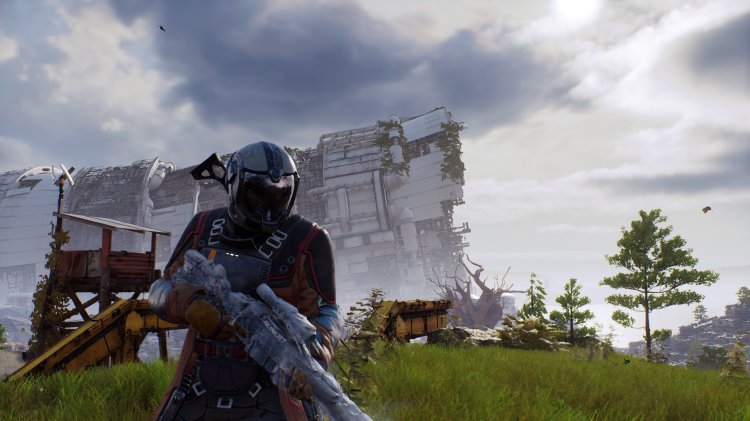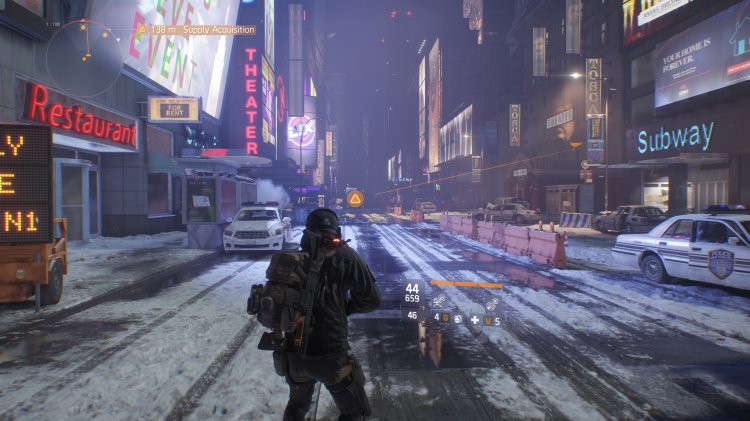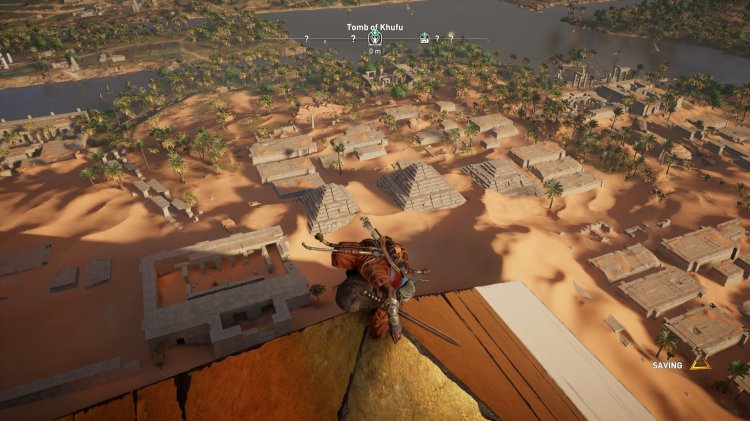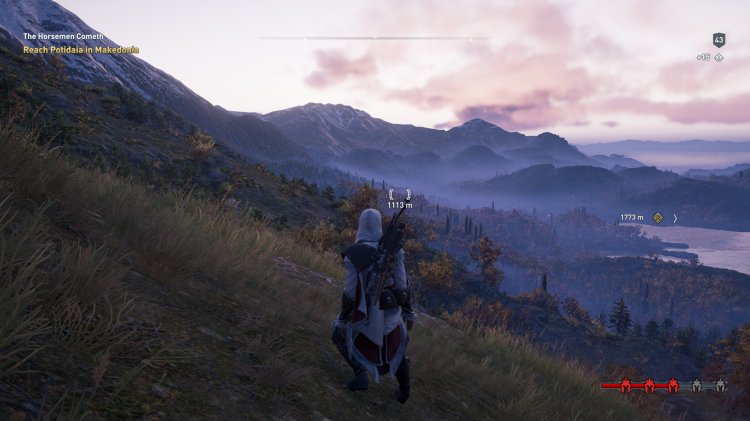Status Update: July 2023
Again no painting nor boardgaming.
I planned to buy Games Workshop's Lion El'Jonson primarch miniature, but their greed made it impossible, by only offering a limited edition (with some extra minis) that went away as soon as it went online. So I'll wait until the normal edition comes out, whenever that happens (GW an amazing company but at times totally careless about their customers).
Let's go on with the video gaming updates:
Finished
Hand of Fate
To be honest, I finished this title a while ago, but decided to play it a bit more before starting with the second part (whith I put on hold, for various reasons).
It is a small gem: A roguelite that is partly a "choose your adventure" game, partly a card game, with a big amount of luck/randomness, and bits of arcade when you fight enemies and bosses. The premise is that you are a warrior that will play a very dangerous game with a "dungeon master", having all sorts of adventures, choices to make, and dying (a lot), all meanwhile you unlock better cards to potentially use in your next attempt.
It can get a bit repetitive at the end, when you've unlocked most cards and basically depend on luck and some bits of strategy to reach the last levels not only alive but well equipped, but the storytelling, the voice acting, and the atmosphere is awesome.
Warhammer: Chaosbane
Meanwhile I waited for Diablo IV, I picked up some similar action RPGs with isometric view, and Chaosbane was the first one I went with. While not terrible, you will soon notice the medium-budget aura. Mechanics are not too varied (a few feel half-done/unfinished), maps are very repetitive, and in general there's not much incentive to play it once you finish the campaign once, because you will face almost the same content, with no randomness.
Still, if picked in some sale is fun for a few hours.
Wolcen
Another action-RPG, this one with more budget than Chaosbane (but still not a Triple-A title). Wolcen is... a bit disappointing. It begins nicely, but has too many ups and downs: in the story, in the gameplay, in the graphics (why some characters are so taller that you feel puny?)... It is not bad per-se, and I mostly enjoyed going through the campaign. But instead of keeping and keeping playing, even with some curious end-game rogue-lite mechanics, I "shelved it" as soon as I finished, wanting to move on to another game.
Again, good if picked in a sale.
Diablo IV
Diablo is back. When I write a bit below about the only title I have in progress, I can only say that I was happy that Zelda TOTK was released a few weeks earlier than Diablo 4; That way, I could enjoy both, as now Diablo is eating most of my free time.
While to me feels way better than Diablo 2, and in some mechanics also than Diablo 3, D3 is still a superior and more polished title. D4 feels... rushed out. The campaign is a bit too long, with some fragments a bit boring (while others are great), the game has been transitioned to a kind of lite-MMORPG, with tons of very similar side quests and an open-world map at times repetitive...
But my biggest issue is the voice acting: Diablo titles never had the best voice acting outside the main characters, but in D4, it feels like they spent most of the budget in Lorath, Lilith and a few other voices, and 90% of the remaining ones have quite noticeable accents, giving the game a feeling of being lower budget than it really is.
As usual also with all the series titles, except maybe the first one, male characters excepting the Barbarian are "too emo" or ugly, so after levelling a male sorcerer to 52, I decided to start again with a female necromancer (drow-like appearance, really cool).
By the time of this writing, I've already finished twice the campaign and I'm enjoying the "end game" content (where really most of the content resides, except videos!). We'll see how the seasons work, and how Blizzard updates with some free content, apart from confirmed paid expansions, but the loot formula is there and working wonders (most of my friends are also playing it).
Considering that I put hundreds of hours in Diablo 3, plus some unmeasured (but not small) amount in the first two titles, looks like a game I'll be playing for years.
Ongoing
Zelda: Tears of the kingdom
Although I haven't finished it yet, after more than 70 hours of gameplay, in my eyes the new Zelda is the game of the year for 2023.
"Bigger, faster, better" is the TL;DR. Same world, but with notable changes. Same 3D engine, but pushed this time to the limits of the Nintendo Switch. Similar familiarity if you have played Breath of the Wild, but new at the same time...
I won't spoil anything about the game, other than it begins just a bit after where BOTW ended, that the new magic abilities are between cool and amazing (the ultrahand/"glue" is simply mind-blowing), and that now the game has three maps: air, land and underworld.
If you want to know more go and check some review, or watch one of the official trailers, but if you have a Switch, this is an even more must-have title than Zelda: BOTW was.
See you back once I'm done with Hyrule (and more Sanctuary)!
Tags: Videogames
Status Update: March 2023
Almost no painting and no boardgaming, so I'll focus on RPG and adventure videogames.
Finished
Mass Effect Andromeda
I picked this title in a sale, and was a pleasant surprise. Despite some rough edges, repeating mechanics and still some weird character faces (the game features a lot of procedurally generated content, but has improved from the initial release), story-wise it felt different and refreshing, and I enjoyed a lot some of the teammates and their side-quests.
You also get to visit quite a few worlds with nice variety and great level design, and being a different story helps to provide different adventures. There are also quite a few boring "filler" quests, But there is enough content and pseudo-mini-games that I registered more than 50 hours before the ending.
Highly recommended for Mass Effect fans, as for now there's nothing else in the horizon.
Mass Effect Legendary Edition (1st game)
I wanted to revisit commander Sheppard's adventures, so I also got the Legendary Edition trilogy with a nice discount, and, after ME Andromeda, decided to replay the first title (for the 3rd or 4th time). Despite of the graphical improvements, it begins to feel the weight of time, especially regarding scenarios: Most non-critical side-quests reuse even the same maps with different generic prop placements; the scenarios feel big and vast but really empty; and the Mako sections (a land vehicle you drive and shoot from) have improved but are still dull and become really boring by the end of the game.
And yet, story-wise is still awesome, as it is playing as a purely evil character (a "renegade"), solving most situations in a badass but funny way, often involving fighting. Later titles became less appealing in regards to the main story, although secondary quests were the best I can remember; ME1 originated everything and it still feels to me like one of those classic sci-fi movies that you can re-watch from time to time, never getting tired.
Ongoing
Valheim
Ongoing, slowly progressing as I read tiny bits of initial strategies and learned that my initial world seed was not very too good, but thankfully you can travel "between worlds". So I could move the character and inventory to a more suitable one, with more varied biomes, more terrain, and less tiny island-like.
The setting of the game is really good, but at the beginning the "survival" part is your real challenge. And I'm loving the norse mythology vibes.
Xenoblade Chronicles 3
Dreading the insanely long previous playtimes to feel you are advancing, I don't know why I almost parked this title. Well, actually I also think that the heavily scottish-like accents, while not new to the series, had something to do. They are very noticeable because the first hours involve a lot of talking between many different characters, many of them with the accent. Plus some weird stuff that I don't yet know what it means (no spoilers).
Still, pushing my way through slowly as I guess the remaining folks I'll meet will be more "generic English" voiced. It will probably be my main RPG target for the following months as I'm eager for the story and how it fits with the previous titles.
New
Conan Exiles
As if one survival game (Valheim) wasn't enough, I went and picked another one! Also just began playing it so it's still early to form a reliable opinion. Your first steps are quite hard (dying of thirst, hunger, or killed by any human I find), and so far I've been just learning to survive, and chopping trees and rocks to be able to build a (tiny) house. Everything requires a lot of materials and breaks so soon!
The hugely varied crafting system is what lured me into this title, so let's see how it evolves. It also looks to contain a huge world to explore.
Hogwarts Legacy
Just began playing this one. Planning to take it slowly, as I like the movies and world lore but I'm not a real Potterhead.
Tags: Videogames
Status Update: November 2022
LOTR Vol. II
It took me time, but I finished J.R.R. Tolkien's The Lord of the Rings, Vol. II - The Two Towers. The first one looked quite similar to the movies, while this second instalment departs at times quite noticeably from the movies and books (at least what I remember of them). I directly went to use a guide, and while I enjoyed the back and forth between the multiple storylines and you can feel that the game engine now was known and better used (more battles, bigger maps), it felt weaker than the first title.
Elden Ring
Unpopular opinion: I abandoned the game. I feel the lore and plot is just a spaghetti of miscellaneous concepts with a thin thread keeping most of them together, and the game demands too much of my time only to enjoy. I love pouring hours in games I have fun with (nearing 200h in Zelda BOTW, hundreds at each Diablo game, etcetera), but I don't enjoy being punished and sometimes cheap-killed frequently. So after 30h of gameplay, just shelved it. Not for me.
Baldur's Gate: Dark Alliance
After having finished it a few times in Playstation 2 and once in the Nintendo Switch, now I have it on PC and also have finished it once 😆
Castles & Castles II
I've loved medieval history since I was a child, so the early nineties franchise Castles offering me a chance to build and maintain castles "the way I liked" was so appealing. I went and played one campaign of each, and re-watched all the Castles II documentary videos, although the video compression is quite ugly nowadays.
Assassin's Creed: Valhalla
I love how Ubi Soft try to respect history, while twisting details to simplify gameplay. In AC Valhalla you will notice it more frequently because the vikings were all but peaceful folks, so you can do viking raids but they are a decaffeinated version (mostly focused on combat and looting). Still they are a nice addition, and the boat travels, fights and all-things-related feel amazing.
What got me tired of the game is the usual Ubi Soft mechanics: You have so many primary quests, secondary quests, optional quests, side-quests, fetch quests, treasure quests and who-knows-what-else quests, that you burnout easily, because in the end gameplay mechanics are what they are: An assassin jumping, sneaking and killing people. So after around 40h, the game tells me I have finished barely around 30%, so I need to to take a break before I abandon it permanently.
It is really amazing visually, and fun to play, it simply gets tiring and should be smaller in missions scope.
Xenoblade Chronicles 3
The third instalment came out on Nintendo Switch, so I'm slowly warming up to pour in the dozens of hours that each new title in the saga takes. The beginning is a bit slow, but it is too early and fans of the series praise the plot so let's see what awaits!
Valheim
More Nordic mythology reading, plus stopping playing AC: Valhalla made me crave for some other "viking themed game". I visited a videogame museum that mentioned the early access title Valheim, and I already had my sights on it, so decided to purchase it and play. It is a survival crafting game (but with a purpose and I think a real ending if you pursue the plot), so I'm still struggling to survive in my small fenced house, while I improve my skills and learn how to craft better tools and equipment to face my first enemy boss, but the game is really fun: you need to build the houses following the old nordic ways, having a fire inside to keep you warm but at the same time letting the smoke go out (or you will choke), structures have weight and pressure, and the pixelated textures 3D engine is actually quite pleasing visually.
Boardgames
On the boardgames side, me and my partner began playing some not too complex boardgames from time to time, so I decided to purchase a very simple dungeon crawler, Karak. We've played a few games and, while it indeed has simple mechanics, is really easy to get into and fun for everyone.
Tags: Videogames
Status Update: Final Fantasy VII Remake, LOTR and Elden Ring
LOTR Vol. I
I played and finished J.R.R. Tolkien's The Lord of the Rings, Vol. I. I must confess I had to use a guide, because the game a) has an archaic UI with commands and text inputs and b) contains quite a few bugs and game-over triggers (some of them not immediate), so I went the "safe enjoyment" route.
It's been so long since I read the books, and I've watched so many times the movies, that I feel I must read the original materials again to see if the game departs a bit in certain areas, or if it is correct and were Peter Jackson's movies the ones reordering certain events. But in general it felt an interesting adventure, with lots of text (thankfully!) and attempts to provide multiple choices and some kind of open-world mechanics, although sometimes it also meant that you do things wrong and don't know until later that you've effectively screwed up the game and should start over. In any case, I will soon play Vol. II, The Two Towers and see how much did it improved (if anything).
Final Fantasy VII Remake
I recently finished Final Fantasy VII Remake, and my general feeling is of sadness. The graphics are amazing, the music is amazing, the new combat system is action-packed and probably the best in the series, the bosses look incredible, some fragments of the game are really good... But despite really trying to, I couldn't get to love this "remake". It contains so much filler content, so many dull conversations, boring and repetitive secondary quests and all kinds of tricks to increase the length of a playthrough, that I really wish they instead just rebuilt the engine and left everything like in the original FFVII but with new Graphics and sound (and if anything, the new battles). There are also story changes, some of them extensions (way more secondary characters lore and interactions and conversations), some of them not bad (Shinra is more evil, or the whispers of fate are two good examples), but some... make me be aware of the next title.
I put the nostalgia glasses on (as a friend of me says), but precisely because of that I enjoyed it even less, because I had began playing the original last year and stopped at the precise same moment this title ends, and comparisons are bad, but sometimes inevitable. Or maybe I've also grown and are no longer a hyped teenager experiencing his first Final Fantasy title on a quite decent PC port (2x the PSX resolution and enhanced 3D effects!). I'm not sure exactly what the combination is, but what I really think is that this title is an attempt to move the fans into a new game, instead of representing a tribute to the old one. We'll see with the second title.
Elden Ring
I tried to avoid the hype, but it caught me. I am not a fan of the Dark Souls games mostly because I don't have enough spare time to endure the slow training the games require, so I cannot say that my time so far with Elden Ring has been amazing. But it hasn't been bad either, I clearly see that it is a really good game, just quite punishing and forcing you to learn the hard way (by dying a lot). I get the feeling that the story is half open to your imagination half "We didn't care much about it" (no matter who they say collaborated in the lore and/or script), and similarly it is an open world "without borders" but also sometimes feeling chaotic or at least far from being as polished as Zelda: Breath of the Wild's world.
I am around 30 hours in, still exploring mostly on my own, but I began taking small hints from a guide (for now just a map marking a recommended order of exploring the various game areas), because sometimes frustrates to be exploring for hours and then you realize you are in a high level zone and simply trying to escape you die, and then have to decide between spending +1h on recovering the gold runes versus doing anything else (in the game or in real life). I appreciate the openness but it is often too much for my taste, I would have loved some extra guidance, again as Zelda or a GTA or an Assassin's Creed do.
I will finish the game but I am surely not going to go hunt all the secrets, of which there seem to be many. I'll focus my knight on levelling enough to kill the bosses and do all main quests, while exploring from time to time but keeping in check the limits. Time is lately my most valuable and scarce asset.
Tags: Videogames
On Looter-Shooters and Adventure-RPGs
As I'm having some disappointment with Final Fantasy VII remake, which I am playing but far from enjoying as much as I expected (and sometimes even dreading "yet another tiring crappy quest to fill hours of content"), I decided to recap other games that I have played recently or that I am currently playing that relate somehow with RPGs. To be specific, with two sub-genres that keep getting better and better the more titles that appear.
Looter-Shooters

Looter-shooters are a curious genre. Derived from "lite RPGs" like Diablo, translate the same loop mechanics of "kill kill kill, and upgrade your equipment and hunt for better loot" to first or third-person shooters. The first game that I can remember did this was Borderlands (I have only played and finished the 1st, now it's a series), but there have been quite a few titles with varied success. In my case, I've played the main campaign of Outriders, and recently finished all the main and secondary missions of The Division, the later featuring an early slow game, but picking up the pace and becoming quite interesting near the end. Too bad I'm not often in the mood of endless gear grinding, not even in the Diablo games (I've done some in Diablo 3, but I get tired), and thus the "end-game" becomes more boring as the random missions you can repeat get less interesting, and PvP is not my thing.
Anyway, an interesting subgroup, especially now that I have FPS-fatigue after so many years playing so many games. And I have The Division 2 awaiting some other games that go first, so more fun incoming.

Adventure-RPGs

This is my own personal classification for the genre of games that combine adventure, action and lite-RPG items: quests, a few stats or "things to improve" and loot seeking. In the past my beloved Zelda: Breath of the Wild gave me now more than 200 hours of entertainment, but other titles that have slowly moved and even advanced further towards that trend are the Assassin's Creed videogame series. AC Origins was incredible to me as I love the pyramids, and after some years of pausing playing the series, was a breath of fresh air to have such a rich, incredibly detailed and awesome Egyptian open world. Then, last year I played AC Odyssey, and while I exhausted my patience with the (literally) hundreds of secondary quests before finishing the expansions/DLCs, again the rich Greek world depicted was extraordinary, plus finally you could play a female character in the series, and the tiny bits of humour in some conversations derived of playing a Spartan woman were priceless.
And now, I also recently purchased AC Valhalla to enjoy some nordic landscapes and classic culture. I'm just beginning the game, but clearly Ubi Soft are one of the best in creating virtual worlds... the scenarios go from spectacular to breathtaking, the weather effects are almost real, and details like watching Northen Lights (Aurora Borealis) or the intricate nordic designs and lore (viking women were probably more dangerous than spartans!) are signs that I will spend a great amount of time roaming the snowy lands and admiring the landscapes.

Tags: Videogames
- ← Newer Articles Page 3 / 15 Older Articles →